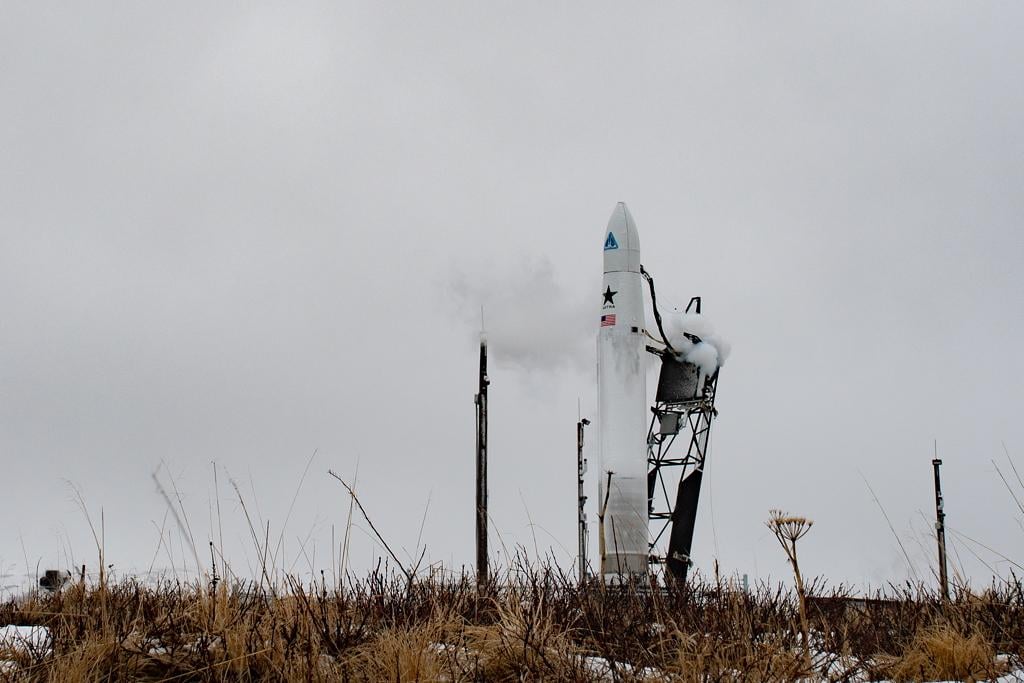
On March 2, with 53 sec. to go, startup Astra scrubbed the first planned launch of its low-cost rocket from Kodiak, Alaska, forfeiting the opportunity to win up to $12 million and ending DARPA’s responsive-space Launch Challenge without a single flight.
Undeterred, DARPA is now looking at the possibly of staging the demonstration of a flexible, responsive launch of a small satellite during a major military exercise.
Astra, the sole remaining competitor in the Challenge, scrubbed the launch because of an out-of-range reading from a sensor on the guidance system, Chief Technology Officer Adam London said. Once the root cause of the sensor anomaly has been identified and corrected, the startup will again attempt to launch from Kodiak.
But the 14-day window allowed by DARPA for the first of two planned flights, later extended by one day after weather prevented attempts on Feb. 29 and March 1, closed on March 2 and, under the competition rules established two years ago, the Challenge ended without a launch.
A successful first launch to low Earth orbit would have won Astra $2 million and an opportunity to win another $10 million for a second short-notice launch to a different orbit from a different pad at Kodiak.
Although “disappointed,” program manager Todd Master said the Challenge did achieve several of the goals set by DARPA, including speeding up the government regulatory processes required to approve a launch. “The Challenge had a discrete start and finish,” he said. “We set aggressive, but achievable goals. Astra got close, but did not achieve them.”
With 30 days’ notice, Alameda, California-based Astra was able to transport its containerized launch vehicle to the Pacific Spaceport Complex at Kodiak, set up on a bare pad, integrate a DARPA-supplied payload, complete pre-flight procedures and attempt a launch into low Earth orbit, he said.
“We were 53 sec. from launch and there was nothing at that site just days before,” London said.
Astra’s first launch vehicle is called “1 of 3” because the startup expects it to take three launches to successfully reach orbit, he said, so its participation in the Challenge was always high risk. “We knew it was a long shot, but we understand how strategic responsive launch is to the government,” London said.
When DARPA initiated the Challenge it not only anticipated multiple competitors, but also expected them to complete one or two test launches in 2019 before the Challenge flights. But two of the three finalists dropped out and delays left Astra’s debut launch as the first planned under the Challenge.
“Astra’s first launch moved to this year, which made it additionally challenging,” Master said. “But the fact that they were willing to use that launch for the Challenge is amazing. We really appreciate their participation and it will not go unnoticed [within the Defense Department].”
Master said DARPA will remove the three payloads from the Astra rocket and return them to their providers so that they can find another launch. “They knew they were taking a risk. When they signed up, they did not know who would launch them. They stuck their necks out a long way,” he said. London says Astra has a number of customers interested in providing payloads for the launch.
DARPA does not intend to restage the Challenge, which was intended to demonstrate a flexible, responsive “launch anywhere, anytime” capability for LEO smallsats. Instead, the agency is in early discussions with the U.S. Space Force on how to integrate responsive launch into a major exercise, Master said. “We want to demonstrate that we can put something on orbit in a rapid fashion that provides new data that was not available before the fight began.”
